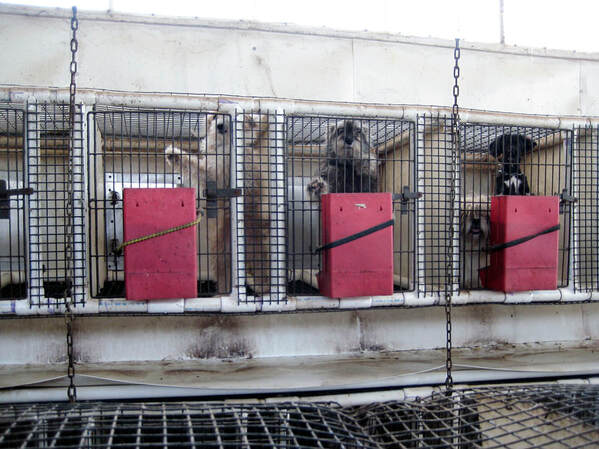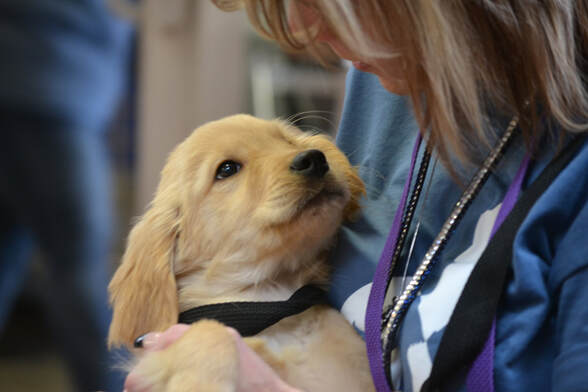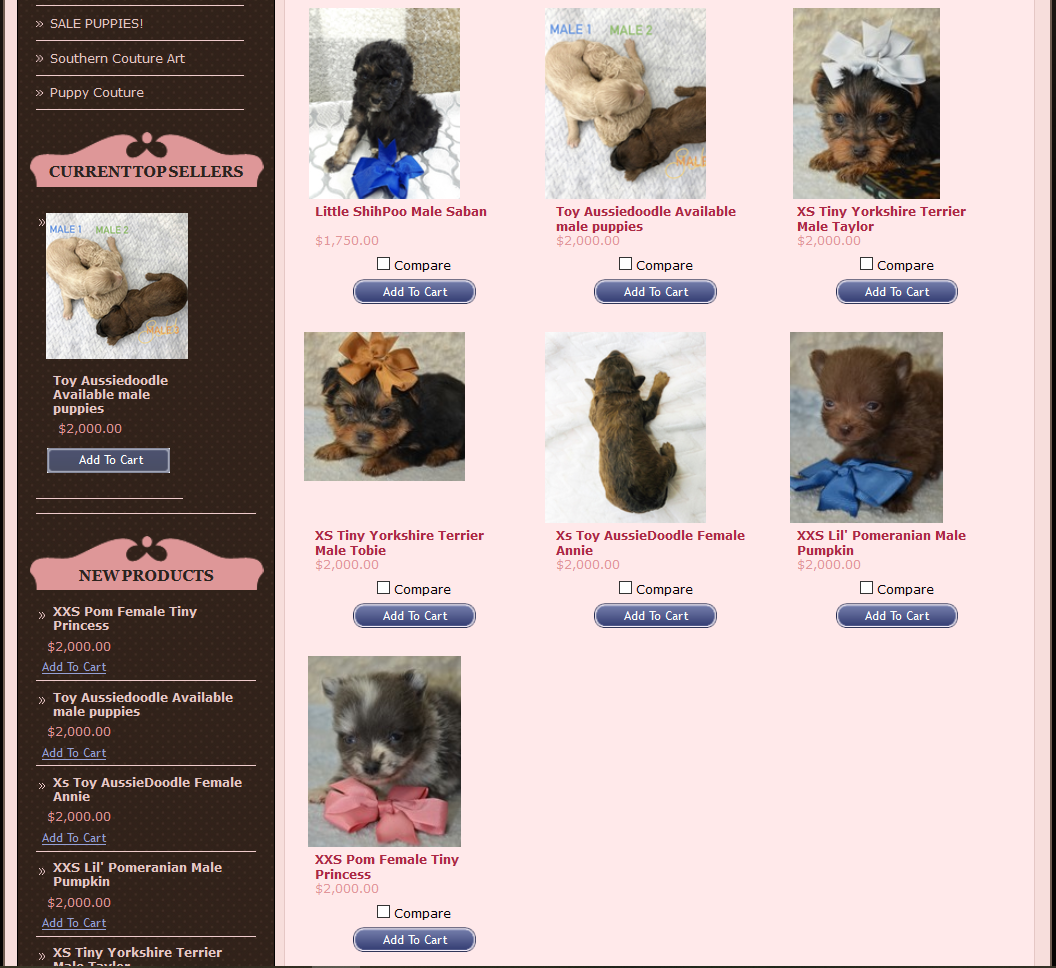|
September is Puppy Mill awareness month. I have not written about mills for a while so a new blog is overdue. I admit that it is prompted, in part, by events in my own area. I don’t live near a Petland at which people protest every weekend and there is only one insidious backyard breeder in my area of which I am aware (who has had dogs stolen because he keeps them in such poor conditions), but the subject of commercially bred dogs is never far from my mind. There are those who chant, “don’t breed or buy while shelter dogs die.” I’m not quite that absolute in my thinking. As unpopular as this opinion makes me with some people, I have no issue at all with people I call hobby breeders who breed dogs once in a blue moon for the love of the breed and who make little (if any) money from the process. My dentist breeds Black Russian Terriers and has been to the Westminster Dog Show before, having won Best in Breed with one of her dogs. Her dogs are incredibly well cared for and they never end up in shelters. Ever. She has also had shelter and rescue dogs in her home and we’ve talked about her fostering shelter dogs in the past. It may sound like a wonderful idea to end all dog breeding, but we all know that won’t happen as a universal change around the globe. It’s perfectly legal and as much as we would like people to adopt a dog from a shelter or a rescue group, some people just won’t for whatever reason. That is their right. I can’t count the number of conversations I’ve had with people who planned to get a dog from a breeder in which I talk about the benefits of adoption. At the end of the day, they use the information as they see fit. I cannot force them to adopt because I see it as the right and responsible thing to do. Commercial breeding of dogs is another matter entirely. I’ve written on this topic many times. To find my past blogs, you can clip on the keyword “puppy mill” on the right hand side of this page. I call commercial breeding of dogs puppy mills because that is what they are – they breed puppies and they produce them in volume much like a textile mill of wood mill. In the case of Smith v. Humane Society of the United States, 519 S.W. 3D 789, 801 (2017), a puppy mill was defined as a commercial farming operation in which purebred dogs are raised in large numbers. That’s good enough for me. I know that not all mills are created equal. Some are places were dogs are socialized, get exercise and get wonderful veterinary care. Some, however, are anything but that. They are cruel places where dogs are bred repeatedly until they cease to be profitable, never leaving the small cages to which they are confined (which means no form of exercise of even walking on a solid surface) and they don’t get veterinary care. In these operations, the dogs truly are seen as a commodity and a source of profit. It’s all about the money. Dogs from these commercial operations are sold in stores, creating a complete disconnect between the locations were the dogs come from and the products being sold. When people see a puppy in a store, they are blinded by the cuteness they see, giving little thought to where that dog came from, how he or she was raised, the conditions of the parents and even the health of the puppy him or herself. If each dog was displayed with images and video clips from the breeding operation which were honest, people would be appalled, infuriated and sickened. (Buying a pet store dog has shown that it can actually make people sick in a very real sense based on investigations by the CDC). A friend who bought a dog in a store years ago told me she did so because the dog looked so pitiful, was already there and she knew they wouldn’t sent him back if he wasn’t sold. She knew that someone was going to buy him and she felt that by taking him home, she was saving him from the store. Talk about emotional blackmail. If we ever hope to bring an end to the commercial dog breeding industry which treats dogs as livestock, with less regard for their well-being in many cases than livestock bred to be part of our food supply, we simply must stop buying what stores are selling. If we know we are not capable of walking away from a puppy in a pet store for emotional reasons, the only solution is to not enter the store at all. There are plenty of stores which sell pet supplies which don’t sell dogs (or kittens), some of which have animals available for adoption from local shelters and rescue groups. Like so many other things in our society, we have to draw a line in the sand and just say no. No to the multi-million dollar industry which started with a USDA promotion decades ago which was intended to help farmers and quickly got completely out of control. No to the industry which treats the dogs with whom we share our homes as commodities to be abused, neglected and treated as disposable when they no longer bring in enough money fast enough. No to the industry which takes us hostage by exploiting our emotional bonds with dogs and our desire to help them find better lives with us. (image courtesy of National Mill Dog Rescue, Inc.) Only when we stop buying dogs in stores will the industry cease to be profitable enough to continue the way it has for decades and those farming dogs may go back to farming another commodity instead. We cannot rely on the USDA to police the very kennels to which is issues licenses. It is an inherent conflict of interest which cannot be overcome. We change our society and our culture by changing our own personal behavior so the industry knows what we value and what we will and will not tolerate.
The dogs in this image are from a local brokering operation near where I live. The local breeder says she is part of a “team” of 13 families who breed and sell dogs. In order to buy a puppy from her, you have to make a non-refundable deposit of half the price of the dog. You cannot see the conditions from which the puppy comes and you have to make an appointment to meet your new puppy on a Tuesday or Thursday. The prices for these dogs make this about profit, not about love for a breed. This is a thriving business. I guess I should not be surprised that the dogs are listed on the website as “new products.” Some of the dogs are listed as XXS and weigh a pound. Just. Say. No.
0 Comments
Your comment will be posted after it is approved.
Leave a Reply. |
AuthorI am an animal welfare advocate. My goal is to help people understand some basic issues related to companion animals in America. Awareness leads to education leads to action leads to change. Archives
July 2024
Categories
All
image courtesy of Terrah Johnson
|



 RSS Feed
RSS Feed